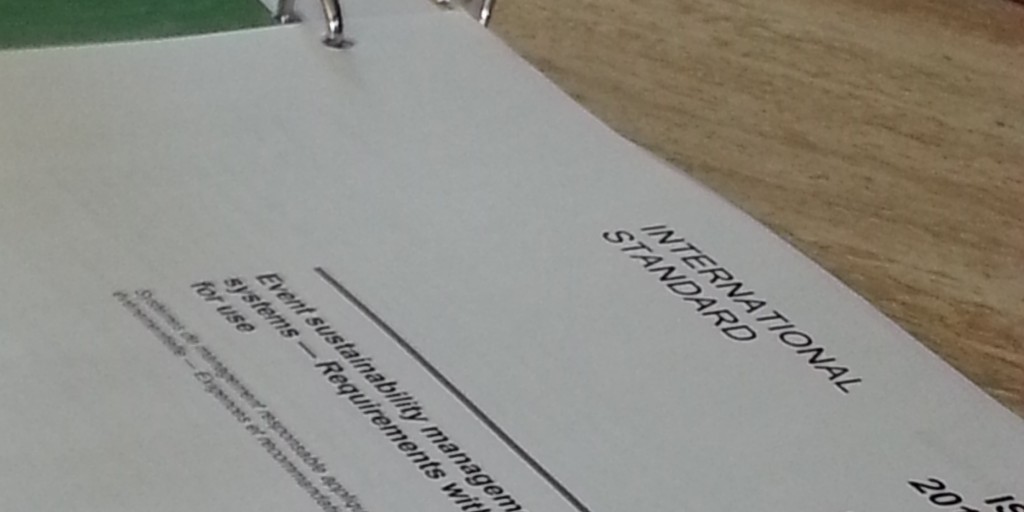An Introduction to ISO 20121: Sustainable Event Management Systems
James Watson | Posted on |

ISO 20121:2012 is an international standard for sustainable event management. If you’re planning on hosting a sustainable or “green” event that is both comprehensive and credible in its implementation, this really is the standard you need to know. Ask yourself this:
- Do I supply products or services to the events industry?
- Does my organization plan a lot of events?
- Do I plan any events myself?
If you can answer “yes” to one of these questions, then you need to know about this International Standard, ISO 20121.
ISO 20121 - Event sustainability management systems
The proper naming convention for the standard is ISO 20121:2012 but it is commonly referred to simply as ISO 20121 (“[eye-soh] twenty twelve one”). The name “ISO” is derived from the Greek isos, meaning equal, and is a short name (not an acronym) for the International Organization of Standardization.
Established in 1947, ISO is an independent, non-government organization made up of members from the national standards bodies of 163 countries. They develop International Standards through global consensus, inviting experts from all over the world to develop the standards that are required by their sector. In this manner, ISO 20121 has been designed to help organisations in the events industry improve the sustainability of their event related activities.
The standard does not demand any specific performance metrics (like environmental, social, or financial) but rather it is focused on the systems and processes that are required to measure and manage those metrics. It prescribes a blueprint for the basics of sustainable event management system and in doing so provides a common ground from which professionals may communicate and collaborate across the industry.
Defining scope and claiming compliance
In terms of scope, the ISO 20121 event sustainability management system can be applied to a single event, a series of events, or a whole organization. Furthermore, it can apply to independent event planners, corporate event planning teams, and event suppliers (venues, caterers, lighting and sound engineers, transportation).
Claiming compliance to the ISO 20121 international standard can be a tricky process and requires that you navigate a few official hurdles, but otherwise it’s relatively straightforward. Once the sustainable event management system has been implemented, there are several ways to claim compliance:
- by claiming compliance yourself,
- by being audited by a second party (i.e. Green Event Ninjas) and making a statement of conformity, or
- by being certified by a third party that is qualified to audit and certify the system.
The first two options are the most common strategies for claiming compliance with ISO 20121. The third requires a greater financial investment and is normally undertaken only when specific circumstances or client/stakeholder demands call for it.
ISO itself does not engage in any auditing or certifying activities. Therefore, the integrity of the claim to compliance lies in the reputation of those declaring, auditing or certifying it. To this end, transparency is highly encouraged and any form of “green-washing” in reference to your sustainable event management must be avoided.
A flexible sustainable event management experience
The magic of the ISO 20121 system is in its balance between rigidity and flexibility. At first glance you see an international standard that demands very strict attention to detail and commitment. A second look reveals a system that is highly adaptable to a wide range of circumstances, capable of accommodating the creativity of the events industry and its professionals.

2 Comments